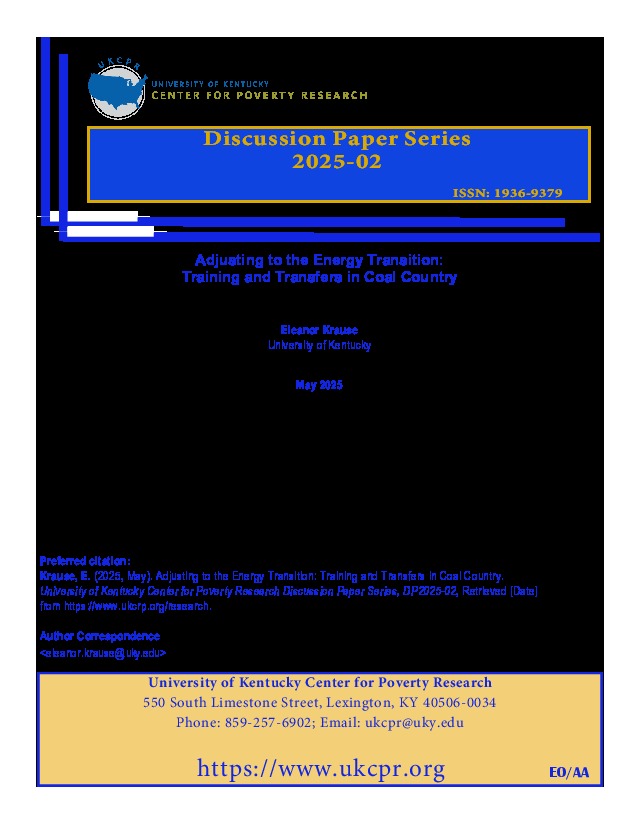Between 2011 and 2016, coal mining employment declined by over 50 percent in Appalachia, resulting in large earnings and employment losses in coal-dependent communities. Whether these disruptions reflect temporary adjustment costs or signal more persistent decline depends in part on the extent and nature of various investment responses. This paper leverages differential Commuting Zone (CZ-) level exposure to coal’s decline to estimate its impact on government transfers and postsecondary training investments. Exposed CZs experienced significant increases in government transfer payments per capita. In contrast, coal’s decline produced no statistically detectable change in postsecondary degree completions, enrollment, or institutional finances. This null training response contrasts with documented effects in other settings. Given the importance of human capital in regional recovery from economic shocks, these findings suggest that distressed regions affected by the transition away from legacy energy sectors may struggle to adapt without more targeted support for postsecondary training.
Research
Welfare ReformPDF Thumbnail
